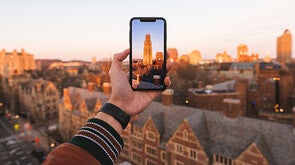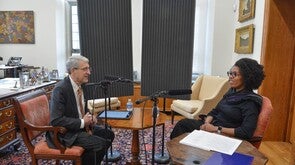
Virtual Yale
There are many ways to experience the university’s research, teaching, collections, and more…online.
Explore below to watch a lecture, take an online course, listen to a podcast, or interact with great works of art.



There are many ways to experience the university’s research, teaching, collections, and more…online.
Explore below to watch a lecture, take an online course, listen to a podcast, or interact with great works of art.


